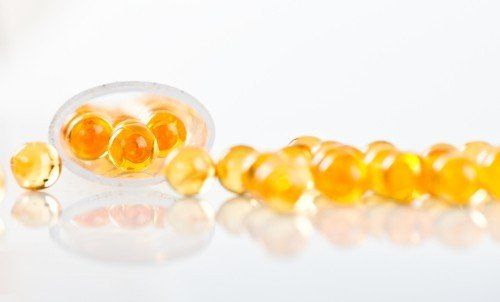Tocotrienols May Promote Bone Health in Postmenopausal Osteopenic Women in New Study
Researchers investigated the effects of a patented annatto-derived tocotrienol ingredient on key biomarkers of bone health, as previous studies in ovariectomized animal models of postmenopausal women have linked bone benefits to annatto tocotrienols.
Photo © Shutterstock.com/Valeri Potapova

In a research first, scientists at the Texas Tech University Health Sciences Center published the results of a new clinical study1 showing that tocotrienols from annatto seed may promote bone health in postmenopausal osteopenic women.
Osteopenia is the medical term for a thinning of bone mass held to be a precursor to and serious risk factor for osteoporosis-a disease that the International Osteoporosis Foundation says affects some 200 million worldwide, causing about 9 million fractures annually. According to the National Osteoporosis Foundation, 22 million American women and 12 million men currently qualify as osteopenic. And though pharmaceutical treatment can slow bone loss, it may also involve serious side effects, like drug-induced decaying of the jawbone.
Thus researchers investigated the effects of a patented annatto-derived tocotrienol ingredient (DeltaGold, by American River Nutrition, Inc., Hadley, MA) on key biomarkers of bone health, as previous studies in ovariectomized animal models of postmenopausal women have linked bone benefits to annatto tocotrienols.
In the randomized, double-blind placebo-controlled trial, 87 postemenopausal women received either the tocotrienol ingredient-some at 300 mg/day and others at 600 mg-or an olive-oil placebo for 12 weeks. All subjects supplemented daily with 400 IU vitamin D and 500 mg calcium, too. Among the bone biomarkers measured were bone-specific alkaline phosphatase (BALP), an indicator of bone formation; N-terminal telopeptide (NTX), associated with bone resorption; soluble receptor activator of nuclear factor-kappaB ligand (sRANKL), also associated with bone resorption; and osteoprotegerin (OPG), which helps signal bone formation.
Even at the study’s midpoint, the tocotrienol subjects’ BALP/NTX ratios-reflecting bone remodeling-were up roughly 40%; by the study’s end, both experimental groups’ ratios had risen about 100%. Further, ratios of bone-resorbing sRANKL to bone-forming OPG decreased 7-13% in the tocotrienol subjects after only six weeks and 13- 24% more at the study’s finish, while sRANKL/OPG ratios in the placebo group rose 21-36%.
The researchers surmise that the tocotrienols effect their benefits by suppressing oxidation, as evidenced in a 49% drop in urine 8-hydroxy-2’-deoxyguanosine (8-OHdG), a DNA breakdown product and biomarker of oxidative stress.
In a press statement, Dr. Barrie Tan, president of American River Nutrition, noted the “well-designed” study’s “unambiguous findings” that the tocotrienol ingredient “promotes healthy bone during a physiologically vulnerable period of life.” As tocotrienol benefited subjects beyond vitamin D and calcium supplementation alone, Tan looks forward to seeing more bone-health formulators include tocotrienols.
References:
- Shen CL et al., “Tocotrienols supplementation suppressed bone resorption and oxidative stress in postmenopausal osteopenic women: a 12-week randomized double-blinded placebo-controlled trial,” Osteoporosis International. Published online ahead of print, January 12, 2018.






